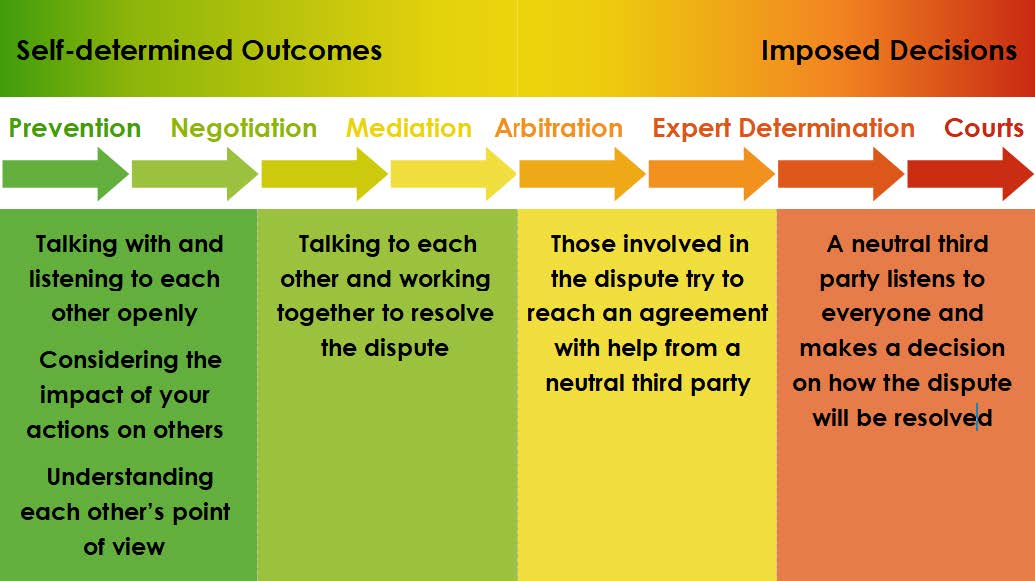Guidelines for Mediation: Navigating the Process Successfully


Introduction:
Mediation is a valuable alternative dispute resolution method that promotes collaboration and resolution. Understanding the guidelines for the mediation process is essential for participants seeking a successful and efficient resolution to their conflicts. In this article, we will explore key guidelines to navigate the mediation process effectively.
Setting the Stage:
The mediation process begins with the parties involved agreeing to mediate. This voluntary process creates a cooperative environment where participants actively engage in finding common ground. The mediator, a neutral third party, facilitates communication and guides the parties toward a mutually agreeable resolution.
Defining Ground Rules:
Establishing ground rules is a crucial step in creating a respectful and productive mediation environment. Ground rules set expectations for participant behavior, ensuring that discussions remain focused, respectful, and conducive to problem-solving. Clear communication and active listening are emphasized throughout the process.
Identifying Issues and Interests:
Participants are encouraged to identify and articulate their underlying issues and interests during the mediation process. Understanding the root causes of conflicts helps in generating creative solutions that address the core concerns of all parties involved. This step contributes to finding mutually beneficial resolutions.
Open Communication:
Effective communication is at the heart of successful mediation. Participants are encouraged to express their thoughts, feelings, and concerns openly. The mediator facilitates a structured dialogue, ensuring that all perspectives are heard and considered. This open communication fosters a collaborative atmosphere.
Generating Options:
Once the issues are identified, participants work together to generate possible solutions. Brainstorming and exploring various options allow for creativity in problem-solving. The mediator assists in evaluating the feasibility and desirability of proposed solutions, guiding the parties toward consensus.
Maintaining Neutrality:
Mediators maintain neutrality throughout the process, ensuring that they do not favor any party. This impartial stance contributes to the fairness of the mediation, creating an environment where participants feel comfortable sharing their perspectives without fear of bias.
Drafting Agreements:
When parties reach a consensus on a resolution, the mediator assists in drafting a formal agreement. This document outlines the terms of the agreement, including any commitments or actions each party agrees to take. The clarity of the agreement is essential for preventing future disputes.
Confidentiality:
Confidentiality is a cornerstone of the mediation process. Participants can freely discuss their concerns and potential solutions without fear of the information being used against them later. This confidentiality creates a safe space for open and honest communication.
Reviewing Legal Implications:
While mediators do not provide legal advice, participants are encouraged to consult with legal professionals to understand the legal implications of any proposed agreement. This step ensures that participants make informed decisions about the resolution and its potential legal consequences.
Closure and Follow-Up:
Once an agreement is reached and documented, the mediation process concludes. However, the resolution doesn’t end there. Follow-up measures may be established to ensure that parties fulfill their commitments and that the resolution remains effective over time.
Conclusion:
Navigating the mediation process successfully involves adherence to key guidelines that promote cooperation, communication, and resolution. Whether resolving workplace conflicts, family disputes, or business disagreements, understanding and following these mediation process guidelines can lead to constructive and lasting outcomes.
Explore more about Mediation Process Guidelines at greatblogabout.org







